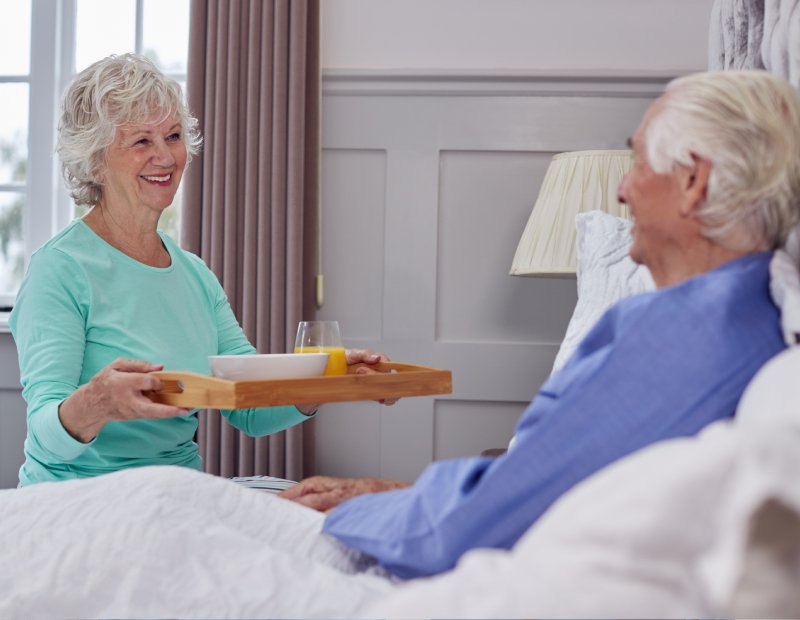Importance of Discharge Planning
Effective discharge planning is crucial for ensuring a smooth transition from hospital to home, particularly in post-hospitalization care in Sacramento. It plays an essential role in optimizing hospital resources while enhancing patient outcomes.
Impact on Hospital Length of Stay
Discharge planning can significantly influence the duration of a patient’s hospital stay. On average, individuals who receive structured discharge planning and are hospitalized for medical conditions experience a reduction in their initial hospital stay by nearly 0.73 days (PMC). This reduction in stay is highly beneficial, especially for those recovering from medical conditions.
| Medical Condition | Average Reduction in Hospital Stay |
|---|---|
| Patients with medical conditions | 0.73 days |
| Patients recovering from surgery | 0.06 days |
Source: PMC
However, the reduction in hospital stay for patients recovering from surgeries is minimal (mean difference of 0.06 days). For mixed medical and surgical conditions, the results show variable impacts, underscoring the necessity of tailored discharge plans for different patient groups.
Effects on Readmission Rates
Effective discharge planning can also impact readmission rates. For individuals hospitalized due to medical conditions, there is a relative reduction in readmission over an average follow-up period of three months, with a relative risk (RR) of 0.89 (PMC). This underscores the importance of comprehensive discharge plans in minimizing the likelihood of returning to the hospital.
| Hospital Readmissions | Readmission Rate (Relative Risk) |
|---|---|
| Medical conditions | 0.89 |
Source: PMC
A follow-up telephone call post-discharge has been indicated to reduce readmissions by up to 50% (PubMed Central). While these figures highlight the potential of structured discharge strategies to reduce hospital readmissions, the overall impact on patient mortality and psychological health appears negligible due to the low certainty of evidence.
For a more detailed examination of the benefits of structured discharge plans, explore our comprehensive guide to non-medical home care in sacramento.
Understanding these impacts is fundamental to our approach at Bravo Personal Care in Gold River, CA. Ensuring that our veterans and their families receive the best post-hospitalization care means prioritizing effective discharge planning and seamless transitions to home care. For more insights into how proper planning and post-hospital services play a role in reducing readmissions, see our article on reducing hospital readmissions with post-hospital care services.
Benefits of Structured Discharge Plans
Effective discharge planning is fundamental to ensuring a safer, smoother transition from hospital to home. Especially for our veterans, having a structured discharge plan can significantly enhance patient satisfaction and offer potential cost savings.
Enhancing Patient Satisfaction
Structured discharge plans have been shown to increase satisfaction levels among patients, caregivers, and healthcare professionals (PMC). Our veterans deserve the best post-hospitalization care in Sacramento, and a well-organized discharge plan can make a significant difference in their overall experience.
Key benefits of structured discharge plans for patient satisfaction include:
- Better understanding of care instructions
- Peace of mind knowing follow-up care is in place
- Reduced anxiety about transitioning back home
Additionally, involving community nurses for follow-up care has proven to be especially effective. Patients who receive follow-up from a community nurse are nearly twice as likely to avoid a 30-day readmission (PubMed Central). This proactive approach helps veterans feel supported and secure during their recovery process.
For more information on how structured discharge plans can improve outcomes, check our article on reducing hospital readmissions with post-hospital care services.
Potential Cost Savings
While there’s very low certainty evidence concerning the exact cost savings of structured discharge plans compared to routine discharge (PMC), evidence suggests they can contribute to potential cost savings by reducing readmission rates and preventing complications.
Table: Estimated Readmission Rates Comparison
| Intervention Type | 30-Day Readmission Rate |
|---|---|
| Structured Follow-Up | ~10% |
| No Follow-Up | ~19% |
- Data indicated patients with structured follow-up face a 1.927-fold higher chance of avoiding emergency readmissions (PubMed Central).
A reduced readmission rate leads to lower healthcare costs for veterans and ensures better utilization of medical resources. Structured discharge planning, including follow-up care, minimizes the financial burden on both veterans and the healthcare system.
Explore more about how structured discharge plans lead to cost savings in our detailed guide understanding the cost of non-medical home care in sacramento.
For veterans and their families in the Gold River, CA area, choosing a provider like Bravo Personal Care who understands the intricacies of post-hospitalization care ensures a safer transition home. Our comprehensive home care services align with the best practices for discharge planning, enhancing patient satisfaction and promoting cost-efficiency.
For more insights, visit our article on top benefits of in-home senior care in sacramento and how families in sacramento benefit from non-medical home care.
Transitioning from Nursing Homes
When it comes to the transition from nursing homes to in-home care, there are several considerations to ensure a smooth and safe process for residents. In this section, we’ll explore the challenges of transitions and ways to fulfill resident preferences.
Challenges of Transitions
Transitioning from a nursing home to in-home care can be a complex process that poses several challenges.
- Regulatory Hurdles: State regulations and extensive paperwork can slow down the transition process. In California, for example, it takes an average of seven months to complete one transition due to these bureaucratic challenges (CalMatters).
- Housing Waitlists: Finding affordable housing is often a significant barrier. In California, the average wait time for affordable housing exceeds 2 ½ years, complicating the transition for many residents (CalMatters).
- Healthcare Coordination: Ensuring continued care during the transition requires careful coordination among healthcare providers.
| Challenge | Impact |
|---|---|
| Regulatory Hurdles | Lengthens transition time |
| Housing Waitlists | Delays community integration |
| Healthcare Coordination | Requires comprehensive planning |
Understanding these challenges allows us to better prepare and navigate the transition process. For additional reading on the impact of home care, see our article on reducing hospital readmissions with post-hospital care services.
Fulfilling Resident Preferences
Fulfilling the preferences of residents is crucial for their well-being during the transition from nursing homes to in-home care.
- Personalized Care Plans: Developing individualized care plans helps address the specific needs and preferences of each resident, ensuring a higher quality of life. For more on personalized care, visit our guide on how Bravo Personal Care Services ensures quality care for seniors.
- Community Integration: Many residents prefer to live in the community rather than in institutional settings. According to CalMatters, over 9% of California nursing home residents have low-level care needs and could potentially live in the community.
- Maintaining Independence: Providing seniors with opportunities to engage in activities of daily living (ADLs) and instrumental activities of daily living (IADLs) helps maintain their independence.
| Preference | Approach |
|---|---|
| Personalized Care | Individualized care plans |
| Community Integration | Identify residents with low-level care needs |
| Independence | Facilitate ADLs and IADLs |
Ensuring that we address these preferences leads to improved satisfaction and quality of life for the residents. For more information on fulfilling resident preferences, check out our article on how non-medical home care promotes senior independence.
Transitioning from nursing homes is not without its challenges, but through careful planning and a focus on resident preferences, it can lead to a more fulfilling and independent life for many seniors. Topics such as how light housekeeping helps seniors live independently and the emotional and physical benefits of companionship for seniors offer additional insights into enhancing the quality of in-home care.
Programs for Safe Transitions
One of the key elements in ensuring optimal post-hospitalization care in Sacramento involves effective transition programs. UC Davis Medical Center excels in offering comprehensive programs that prioritize a safer transition home.
Transition Program at UC Davis
The Transition Program at UC Davis Medical Center pairs hospital clinicians with community post-acute partners to ensure continuity of care for patients as they move from the hospital to their homes or other post-acute settings (UC Davis Health). This collaborative approach helps in mitigating the risks associated with hospital readmissions and enhances patient outcomes.
| Key Features of the Transition Program at UC Davis |
|---|
| Pairing hospital clinicians with community post-acute partners |
| Ensuring continuity of care during transitions |
| Reducing hospital readmission rates |
| Enhancing patient safety and satisfaction |
Visit our article on reducing hospital readmissions with post-hospital care services for more insights into effective post-hospitalization strategies.
Services Offered by UC Davis Medical Center
UC Davis Medical Center provides a broad array of services designed to ensure a smooth and safe transition from hospital to home settings. These services include:
Discharge Prescriptions: Assistance with filling discharge prescriptions to prevent delays in medication adherence.
Follow-up Care Referrals: Direct referrals to specialty clinics and other necessary follow-up care services.
Patient Education Classes: Classes aimed at educating patients about managing their health conditions post-discharge.
Home Health Services: Collaboration with physicians and other providers to deliver patient-centered care at home. The UC Davis Home Health Services team provides education and skills to enhance health, function, and independence. They also work with an infusion therapy vendor for patients requiring infusion services.
Hospice Care: Offering both inpatient and home hospice care to provide comfort and support to those with life-limiting illnesses.
Palliative Care: Comprehensive support services focusing on improving the quality of life for patients dealing with serious illnesses.
Explore our detailed guide on the role of hospice care support in enhancing end-of-life comfort for more information on how hospice services can benefit patients and families.
| Key Services at UC Davis Medical Center | Description |
|---|---|
| Discharge Prescriptions | Assistance with medication adherence post-discharge |
| Follow-up Care Referrals | Referrals to specialty clinics and follow-up services |
| Patient Education Classes | Health management education for patients |
| Home Health Services | Patient-centered care at home |
| Hospice Care | Comfort and support for life-limiting illnesses |
| Palliative Care | Quality of life improvements for serious illnesses |
For insights into how non-medical home care promotes senior independence, consider reading our article here.
UC Davis Medical Center’s comprehensive offerings ensure that patients transitioning from hospitalization receive the necessary support and care, ultimately leading to improved health outcomes and a safer transition home. For additional resources and guides, check out our articles on top benefits of in-home senior care in sacramento and how meal preparation services improve seniors’ well-being.
Home Care Services at UC Davis
Home care services provided by UC Davis play a critical role in ensuring a safer transition home post-hospitalization. These services offer comprehensive care that caters to the unique needs of individuals, allowing them to recuperate comfortably in their own homes.
Home Health Services
The UC Davis Home Health Services team is dedicated to delivering patient-centered care after hospital discharge. This team collaborates closely with physicians and other providers to enhance the patient’s health, function, and independence. Among the services offered, infusion therapy is available in partnership with an infusion therapy vendor.
| Service | Description |
|---|---|
| Nursing Care | Skilled nursing services to manage medications, dress wounds, and provide medical monitoring. |
| Physical Therapy | Programs designed to improve mobility and strength. |
| Occupational Therapy | Assistance with activities of daily living, such as bathing and dressing. |
| Speech Therapy | Support for those with speech or swallowing difficulties. |
| Infusion Therapy | Administered at home for patients needing long-term intravenous medication. |
We emphasize the importance of comprehensive home care, which includes understanding the cost of non-medical home care in Sacramento and how light housekeeping helps seniors live independently.
Hospice Program
The UC Davis Hospice Program is aimed at providing compassionate care for terminally ill patients whose life expectancy is six months or less. This program focuses on pain and symptom management, case management, and psychosocial and spiritual support. Hospice care can be delivered in various settings, including at home, in a skilled nursing facility, or even an inpatient setting.
| Service | Description |
|---|---|
| Pain and Symptom Management | Comprehensive control of pain and other distressing symptoms. |
| Case Management | Coordination of care among various providers to ensure seamless support. |
| Psychosocial and Spiritual Support | Emotional, social, and spiritual guidance for both patients and their families. |
| Bereavement Support | Individual and group support for grief and loss. |
For more insights on the role of hospice care in enhancing end-of-life comfort, refer to our article on the role of hospice care support in enhancing end-of-life comfort.
UC Davis’s commitment to personalized, empathetic home care ensures that patients receive the necessary support to manage their health and maintain their independence. This approach aligns with our dedication to offering the best post-hospitalization care in Sacramento: a safer transition home. For a comprehensive understanding of non-medical home care services, see our comprehensive guide to non-medical home care in Sacramento.
Palliative Care at UC Davis
Palliative care is a vital service offered by UC Davis, focusing on comprehensive support for patients facing serious illnesses. The aim is to provide relief from the symptoms and stress associated with such conditions, ensuring a better quality of life for both the patients and their families.
Focus of Palliative Care
The UC Davis Palliative Care Program is designed to offer compassionate care for terminally ill patients with a life expectancy of six months or less. The primary focus is on managing pain and symptoms, providing case management, and ensuring psychosocial and spiritual well-being (UC Davis Health). This holistic approach helps to address the various aspects of the patient’s condition, improving their overall comfort and quality of life.
Palliative care at UC Davis emphasizes:
- Pain and Symptom Management: Effective treatment to alleviate physical discomforts.
- Case Management: Coordinated care to meet the individual needs of each patient.
- Psychosocial Support: Emotional and mental health support to help patients and their families cope.
Support Services Offered
UC Davis offers a wide range of support services to ensure comprehensive care for its palliative care patients. These services can be provided in various settings, including at home, in skilled nursing or assisted living facilities, or in an inpatient setting. This flexibility ensures that patients receive the appropriate level of care wherever they are most comfortable.
Support services include:
- In-home Hospice Care: Providing comfort and support in the patient’s own home environment.
- Skilled Nursing/Assisted Living Facility Care: Advanced care in specialized settings.
- Inpatient Hospice Care: Intensive care in a hospital setting for patients requiring more support.
- Bereavement Support: Both individual and group support to help families cope with loss.
Table: Palliative Care Services at UC Davis
| Service | Provided At |
|---|---|
| Pain and Symptom Management | Home, Skilled Nursing, Assisted Living, Inpatient |
| Case Management | Home, Skilled Nursing, Assisted Living, Inpatient |
| Psychosocial Support | Home, Skilled Nursing, Assisted Living, Inpatient |
| Bereavement Support (Individual) | Home, Skilled Nursing, Assisted Living, Inpatient |
| Bereavement Support (Group) | Home, Skilled Nursing, Assisted Living, Inpatient |
For more information on how palliative care can enhance the end-of-life experience, visit our article on the role of hospice care support in enhancing end-of-life comfort.
Palliative care at UC Davis exemplifies the importance of compassionate and well-rounded care for those facing critical health challenges. By addressing not just the physical, but also the emotional and spiritual needs of patients, UC Davis ensures a dignified and comfortable journey through the challenges posed by serious illnesses. For additional insights on senior care, explore our comprehensive guide to non-medical home care in Sacramento or learn more about how Bravo Personal Care Services ensures quality care for seniors.
Other relevant topics include how light housekeeping helps seniors live independently and finding the right in-home caregiver in Sacramento. For veterans, explore how to access veterans home care benefits in Sacramento.




